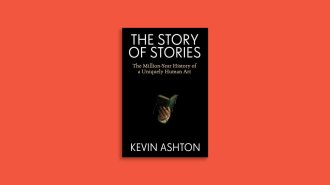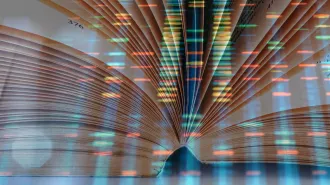Smudge analysis shows how Jefferson changed his mind.

Spectral analysis of an uncharacteristic ink smudge on an early draft of the Declaration of Independence uncovered a little of the rebel spirit in Thomas Jefferson, the colonist and future president who wrote the document.
About 80 years ago, some archivist sandwiched the pages of Jefferson’s draft between sheets of plastic. When the document was taken out of its permanent display case for a brief analysis last year, Library of Congress research scientist Fenella France noticed an uncharacteristic smudge.
France had been probing the document with a new tool known as hyperspectral analysis. It uses LEDs, or light emitting diodes, to successively illuminate an object in 13 discrete bands of light; they run from the ultraviolet through the visible spectrum, and into the infrared. A 39-megapixel camera records the object under each type of light.
Right away, France says, she noticed that under the different spectral bands the smudged segment of the document changed, suggesting that the top word — citizens — might be hiding something. For the longest time, she said, “I didn’t know what it was” because the two inks were very similar. Jefferson carefully wrote over the bottom word to camouflage it, she says. All she could initially see were tiny regions sticking out from below, including a “t” towards the end.
Various pigments, inks and paper treatments will respond differently to some wavelengths of light. The camera “gave us a series of images that we could [digitally] stack, kind of like a deck of cards,” France explains. Software scouted for variations in the image under each spectral band. France then assigned a false color to the elements that differed most so that they would emerge against the background.
After some 10 hours or more of tricky processing carried out over a series of months, France pulled out the masked word: subjects.
The revision offers a glimpse into Jefferson’s attitude as he wrote the Declaration. He rejected the idea that the colonists were traitors to King George III; they were citizens of a nascent nation.
Jefferson had been copying the phrase from a newly written Virginia constitution that used the word subject. Seeing Jefferson’s rebuff of that characterization “was a spine-tingling moment,” France says.
“With this new technology we never know what we’re going to find,” she says, “which reinforces that preservation of original documents is important.”





